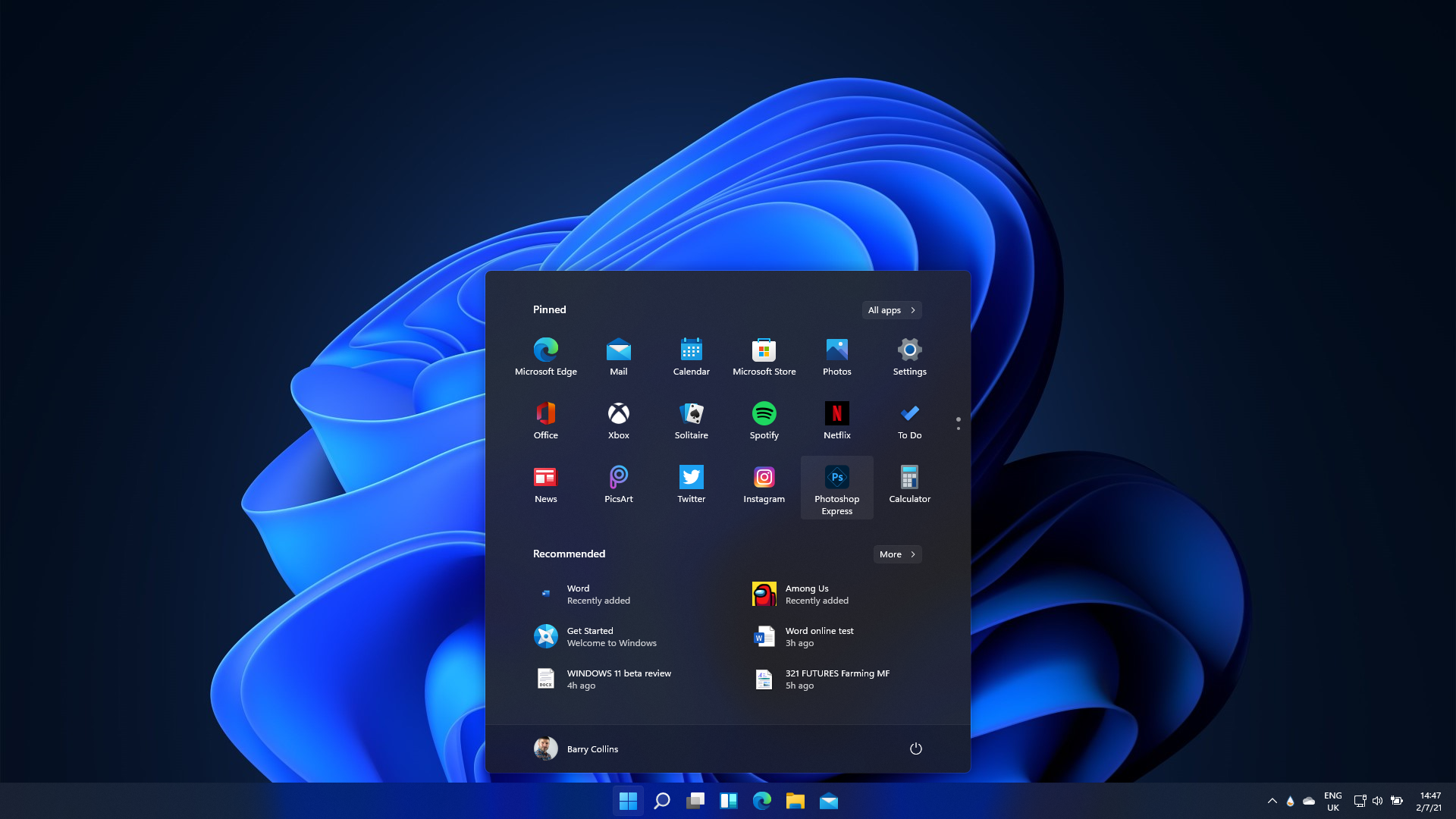Windows 11 rollout will begin on 5 October
The phased release will see all eligible devices offered the upgrade by mid-2022


Microsoft has confirmed that Windows 11 will be released on 5 October, with all eligible devices to be offered the free upgrade by mid-2022.
From 5 October, Microsoft will start rolling out Windows 11 to eligible Windows 10 PCs, while PCs that come preloaded with Windows 11 will start to become available for purchase. The update is set to be rolled out in a phased approach, which means that new eligible devices will be offered the upgrade first.
For UK customers, the new update will be available "beginning this holiday season".
“The upgrade will then roll out over time to in-market devices based on intelligence models that consider hardware eligibility, reliability metrics, age of device and other factors that impact the upgrade experience,” the company stated.
Microsoft expects all eligible devices to be offered the free upgrade to Windows 11 by mid-2022. Users that have a Windows 10 PC that’s eligible for the update will be notified by Windows Update when it's available. Alternatively, users can check to see if it is ready by going to Settings>Windows Update and select “Check for updates”.
New features in Windows 11 include “Start”, which uses the power of the cloud and Microsoft 365 to show users their recent files, no matter what device they were viewing them on. Chat from Microsoft Teams is integrated into the taskbar, a new Microsoft Store will be available, and Snap Layouts, Snap Groups and Desktops will allow users to multitask and optimise their screen space.
One feature that won’t be included at launch is the inclusion of Android apps support in Windows 11 and the Microsoft Store, through the company’s collaboration with Amazon and Intel. Microsoft said that it will start with a preview for this feature for Windows Insiders “over the coming months”.
Get the ITPro daily newsletter
Sign up today and you will receive a free copy of our Future Focus 2025 report - the leading guidance on AI, cybersecurity and other IT challenges as per 700+ senior executives
Microsoft recently provided more details on the reliability of computers that could update to Windows 11, saying that those systems were more reliable in use.
“Those that did not meet the minimum system requirements had 52% more kernel mode crashes (blue screens) than those that did meet the requirements,” Microsoft said. “Additionally, app hangs are 17% more likely, and for first-party apps, we see 43% more crashes on unsupported hardware.”
Zach Marzouk is a former ITPro, CloudPro, and ChannelPro staff writer, covering topics like security, privacy, worker rights, and startups, primarily in the Asia Pacific and the US regions. Zach joined ITPro in 2017 where he was introduced to the world of B2B technology as a junior staff writer, before he returned to Argentina in 2018, working in communications and as a copywriter. In 2021, he made his way back to ITPro as a staff writer during the pandemic, before joining the world of freelance in 2022.
-
 Bigger salaries, more burnout: Is the CISO role in crisis?
Bigger salaries, more burnout: Is the CISO role in crisis?In-depth CISOs are more stressed than ever before – but why is this and what can be done?
By Kate O'Flaherty Published
-
 Cheap cyber crime kits can be bought on the dark web for less than $25
Cheap cyber crime kits can be bought on the dark web for less than $25News Research from NordVPN shows phishing kits are now widely available on the dark web and via messaging apps like Telegram, and are often selling for less than $25.
By Emma Woollacott Published
-
 Tiny11 review: Windows 11 with only 2GB of RAM
Tiny11 review: Windows 11 with only 2GB of RAMReview A version of Windows 11 for older machines that don't meet the full requirements
By Nik Rawlinson Published
-
 Red Hat Enterprise Linux becomes foundational operating system for Cohesity Data Cloud
Red Hat Enterprise Linux becomes foundational operating system for Cohesity Data CloudNews New strategic partnership between Red Hat and Cohesity aims to drive innovation in the data security and management space
By Daniel Todd Published
-
 Ubuntu shifts to four-week update cycle
Ubuntu shifts to four-week update cycleNews Critical fixes will also come every two weeks, mitigating the issues involved with releasing prompt patches on the old three-week cadence
By Richard Speed Published
-
 AlmaLinux follows Oracle in ditching RHEL compatibility
AlmaLinux follows Oracle in ditching RHEL compatibilityNews Application binary compatibility is now the aim with 1:1 now dropped
By Richard Speed Published
-
 How big is the Windows 10 cliff-edge?
How big is the Windows 10 cliff-edge?ITPro Network With some comparing the upcoming Windows 10 end of life to Windows XP, we ask members of the ITPro Network for their insight
By Jane McCallion Published
-
 Everything you need to know about the latest Windows 11 updates - from bug fixes to brand-new features
Everything you need to know about the latest Windows 11 updates - from bug fixes to brand-new featuresNews Two new cumulative updates are on the way and will be installed automatically on Windows 10 and Windows 11 machines
By Rory Bathgate Published
-
 How to download a Windows 11 ISO file and perform a clean install
How to download a Windows 11 ISO file and perform a clean installTutorial Use a Windows 11 ISO to install the operating system afresh
By John Loeppky Published
-
 We could all benefit from better Windows and macOS accessibility features
We could all benefit from better Windows and macOS accessibility featuresOpinion Today’s accessibility features can help you work through a nasty injury, but there’s still plenty of room for improvement
By Barry Collins Published